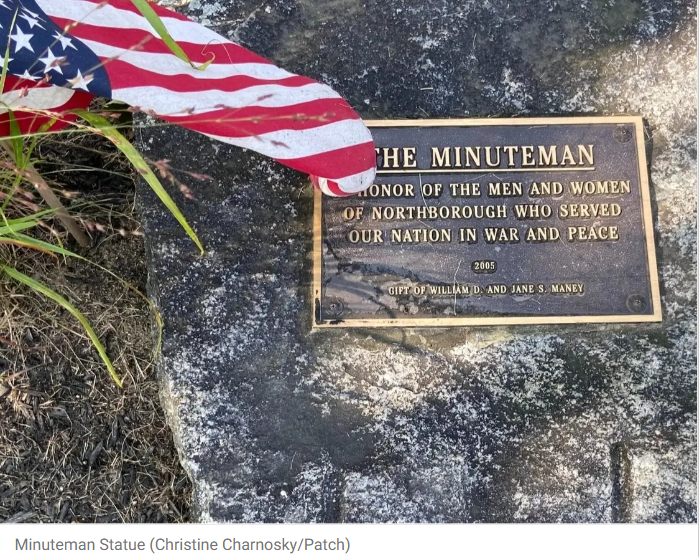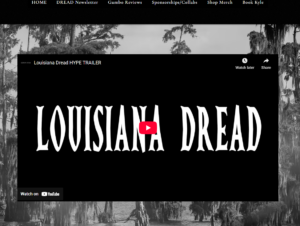SOUTH CAROLINA: SC Play Tells Story Of Gullah Geechee Experience During Revolutionary War
When George Washington goes to heaven in the Gullah Traveling Theater’s telling of the American Revolution, Saint Peter stops him at the pearly gates.
The country’s first president and commander-in-chief of the Continental Army must first reckon with his ownership of slaves and their lives before he can pass, Saint Peter tells him.
Though that’s obviously a fictional scenario, some historians say Washington did struggle internally with the juxtaposition of securing freedom for a new country while enslaving people. His will, signed six months before he died in 1799, ordered enslaved workers at Mount Vernon freed when his wife, Martha Washington, died, though fewer than half actually were.
In the play, the Virginia planter does make it into heaven.
Through Washington and other famous Revolutionary figures looking back at their lives, the nonprofit theater company tells the often-overlooked story of enslaved people in South Carolina during the Revolution, said director Anita Singleton Prather.
“They say behind every great man is a great woman, but I knew behind every great Revolutionary hero was probably some Black folks,” Prather said.
SC250, which is tasked with celebrating the 250th anniversary of the country’s founding, asked the Beaufort theater troupe’s director last year if she would be interested in putting on a show about the Gullah Geechee experience during the Revolutionary War.
Prather jumped at the chance to tell the story, she said.
“A lot of our history has not been included in your normal textbooks or archives,” Prather said.
Research was Prather’s first step.
She, like many people, knew much of the history that has been compiled of enslaved people during the Civil War, but the Revolution remained a dark spot in that history. That wasn’t for lack of trying. Not nearly as much has been written about slaves during that era, she said.
Prather knew that many people were enslaved in Barbados and brought to Charleston, so she visited the country in the Caribbean Sea in January. There, she got a better sense of the slave trade during that time.
She read accounts of the people enslaved to well-known figures during the war in South Carolina, including “Swamp Fox” Francis Marion and “Fighting Gamecock” Thomas Sumter.
Because the play is fictional, Prather used historical accounts as the bones of the stories and filled in the gaps with her own writing, she said.
The play, called Da’Gullah American Revolution Experience, heavily features music, which was another challenge.
Scott Gibbs, the company’s music and art director, wanted to include traditional Gullah Geechee songs from the era, knowing some from the Civil War had survived the years, but he couldn’t find much. So, he rearranged other spirituals to fit the scenes, he said.
“I’ve learned that sometimes [music] lightens the telling of the story,” Gibbs said. “You still have to tell the story. You still have to tell the truth, but it’s how you tell the story and how you tell the truth.”
While the story grapples with an ugly part of history, the point is not to take away from the major contributions and sacrifices the heroes of the Revolutionary War made in founding the country.
Principles of the Declaration of Independence they signed, such as liberty, freedom and the pursuit of happiness, were generally good, Prather said.
The Founding Fathers should have recognized that those principles should have applied to all people in the country, including those who were enslaved, she said. To do that, the play humanizes the people denied the right to freedom for which the heroes of the Revolution fought, she said.
At a time when references to slavery at places such as national parks are being removed, Prather wanted audiences to grapple with the difficult parts of the past, she said.
“If you leave out the Gullah Geechee, then South Carolina history is not complete,” Prather said. “If you leave out South Carolina history, American history is not complete. Without American history, world history is not complete.”
“We have to tell the stories, and history is not good or bad,” Prather continued. “It’s just what happened.”
Those contradictions were what made Prather decide to frame the story through characters looking back on their lives at heaven’s gates as opposed to using a more traditional linear narrative, she said.
A person like Washington, seen as a symbol of freedom during the Revolution, can face the people he enslaved as he never would have in life, she said.
In this version of the afterlife, enslaved people confront the people who owned them. During one act of the play, the characters read fictionalized letters to their masters, saying everything Prather imagined they might have said if given the chance.
For instance, Oscar Marion — who was enslaved by the general who’s the namesake of a South Carolina city, county, and public university — is able to ask Francis Marion how he could enslave him despite them reportedly being friends as children and fighting side by side during the war.
“‘You don’t think I deserve the same freedom I fought for you to have?’” Prather said Oscar Marion asks. “‘You don’t think I deserve the same thing?’”
The play, which showed an abridged preview in May, is only able to tell the story of a handful of enslaved people. Prather wants people to take away a broader curiosity of their role in the war.
“There are so many untold stories that need to be told,” Prather said. “We won’t get to tell them all, but hopefully we’ll give people enough of a taste that they will go and do some of their own research.”
–patch.com./florida



